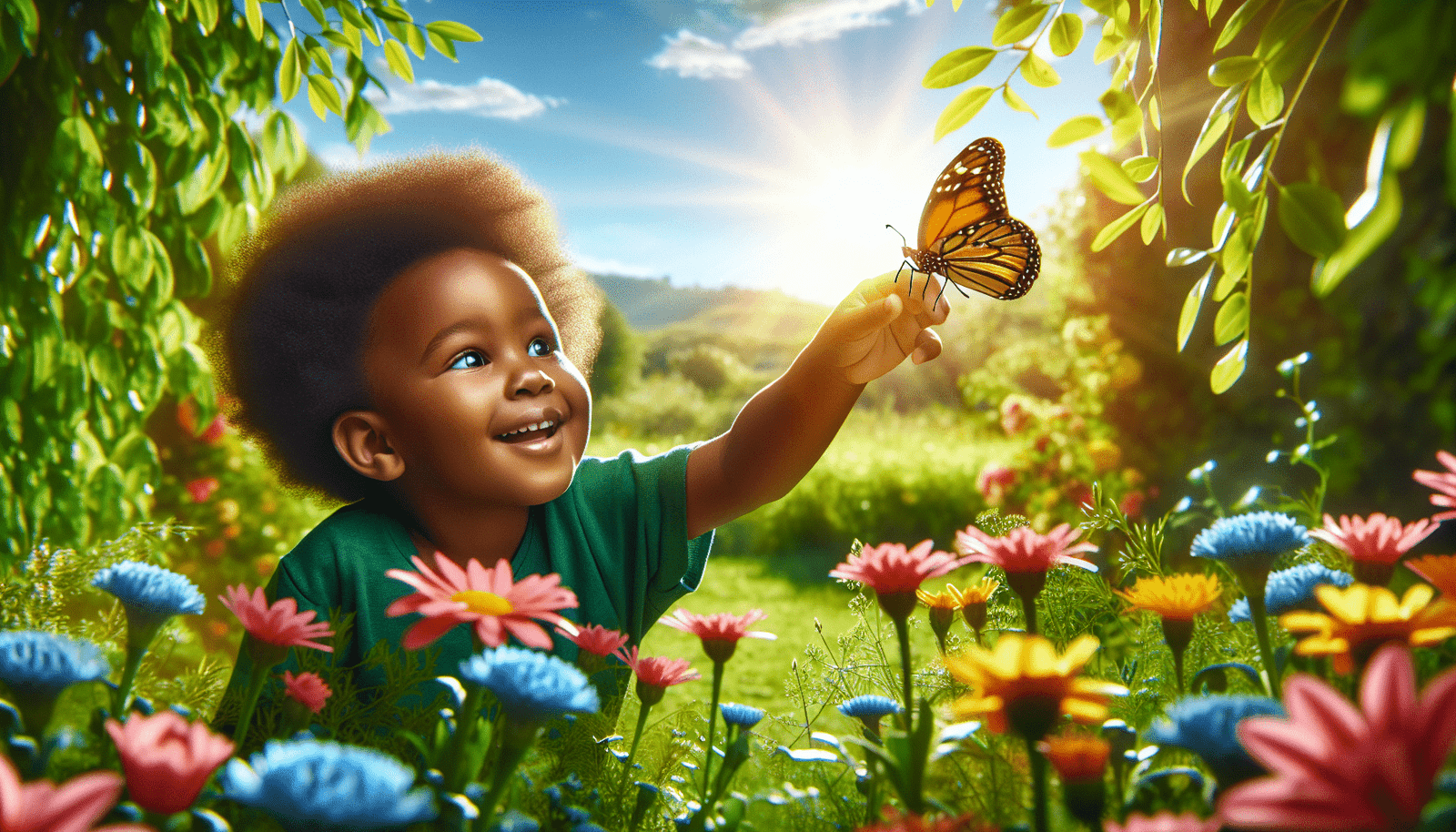When it comes to child development, the benefits of outdoor play are immeasurable. Not only does it provide an opportunity for children to explore and discover the wonders of the natural world, but it also promotes physical fitness, mental well-being, and social skills. From climbing trees and building sandcastles to playing tag and riding bicycles, outdoor play allows children to engage their imaginations, boost their problem-solving abilities, and develop resilience.
In this article, we will dive into the numerous advantages of outdoor play for child development, shedding light on why it is crucial for parents, educators, and anyone interested in fostering the growth and well-roundedness of children. So, lace up your shoes, grab your sunscreen, and get ready to discover the incredible benefits that outdoor play has to offer!
Outdoor Play For Child Development
Benefits of Physical Activity in Outdoor Play
Enhances muscle strength and coordination
Engaging in physical activity during outdoor play can have numerous benefits for children’s development. One of the key advantages is the enhancement of muscle strength and coordination. When kids run, jump, climb, and play games outdoors, they utilize various muscle groups, which helps in strengthening and toning their muscles. This improved muscle strength not only enables them to engage in daily activities with ease but also enhances their overall physical performance.
Boosts overall health and wellness
Outdoor play is an excellent way to promote overall health and wellness in children. Regular physical activity helps in maintaining a healthy weight, reducing the risk of chronic diseases such as obesity, diabetes, and cardiovascular problems. It also improves cardiovascular fitness, strengthens bones, and enhances immune function. Moreover, spending time in nature exposes children to fresh air and vitamin D from the sun, which can further contribute to their overall health and wellbeing.
Increases energy and reduces obesity
Outdoor play has been shown to increase energy levels in children. When kids engage in physical activities such as running, biking, or playing sports outside, their bodies release endorphins, which are known as the “feel-good” hormones. These endorphins not only boost their mood but also provide them with a natural energy boost, making them feel more alert and energized throughout the day. Furthermore, regular outdoor play helps in reducing the risk of obesity by burning calories and maintaining a healthy weight.
Improves sensory skills
Outdoor play provides a sensory-rich environment that stimulates children’s senses and enhances their sensory skills. Through activities like climbing trees, feeling different textures, smelling flowers, and hearing the sounds of nature, children develop their sensory perception and processing abilities. This sensory stimulation improves their sensory integration, allowing them to better understand and respond to sensory information from their surroundings. It also enhances their fine motor skills, such as hand-eye coordination, as they manipulate objects and engage in various outdoor activities.
Teaches kids about risk-taking and safety
Engaging in outdoor play allows children to navigate and negotiate risks, which is an important aspect of their development. By exploring the outdoor environment, children learn how to assess potential risks and take calculated risks within their capabilities. They develop problem-solving skills and learn about their own limitations. Additionally, outdoor play provides opportunities for children to learn about safety, such as looking both ways before crossing the street, avoiding dangerous areas, and understanding how to play safely in different outdoor settings. These experiences contribute to their overall development and help them become more independent and responsible individuals.
Enhancing Cognitive Development Through Outdoor Play
Improves attention span and focus
Outdoor play promotes cognitive development by improving children’s attention span and focus. When kids engage in outdoor activities, they experience new environments, encounter different challenges, and explore their surroundings. This sensory-rich and ever-changing outdoor environment helps stimulate their curiosity and naturally increase their attention and concentration. They learn to stay focused on tasks, follow instructions, and pay attention to details, which are essential skills for academic success and overall cognitive development.
Stimulates imagination and creativity
Outdoor play provides children with endless opportunities for imaginative play and creativity. Whether they are building a fort, pretending to be explorers, or creating stories with natural materials, the outdoor environment stimulates their imagination and encourages them to think creatively. The freedom and space offered by the outdoors allow children to engage in open-ended play, where they can use their creativity to transform the environment and objects around them, enhancing their cognitive abilities and fostering their creative thinking skills.
Promotes problem-solving skills
Outdoor play offers numerous challenges and obstacles that require children to think critically and problem-solve. From figuring out how to climb a tree to finding alternate routes while navigating a trail, children are constantly faced with problem-solving opportunities in the outdoor environment. By encountering and overcoming these challenges, they develop important problem-solving skills, such as thinking flexibly, planning, analyzing, and making decisions. These skills not only benefit them in outdoor play but also transfer to other areas of their lives, such as academics and social situations.
Improves memory and observational skills
Engaging in outdoor play can significantly improve children’s memory and observational skills. The outdoor environment is full of sensory stimuli and ever-changing details, requiring children to pay attention and remember what they see, hear, and experience. By observing nature, landmarks, and surroundings, children develop their visual and auditory memory, which can enhance their ability to recall information and retain knowledge. Additionally, outdoor play provides opportunities for children to practice their observation skills, as they need to identify and interpret different elements of nature and their environment, further strengthening their cognitive abilities.
Encourages learning through exploration
Outdoor play encourages children to explore and discover, leading to valuable learning experiences. The outdoor environment provides a multitude of real-world learning opportunities, from observing plants and animals to investigating natural phenomena. Through exploration and hands-on experiences, children can deepen their understanding of science, ecology, and the natural world. They develop a sense of wonder and curiosity about their surroundings, which motivates them to ask questions and seek answers, promoting a love for lifelong learning.
Outdoor Play and Emotional Development
Teaches kids about handling emotions
Outdoor play plays a crucial role in children’s emotional development by providing a safe and supportive space for them to experience and learn how to handle different emotions. Engaging in outdoor activities can be a source of joy, excitement, and happiness, allowing children to experience positive emotions. At the same time, outdoor play also exposes children to challenges, setbacks, and conflicts, providing opportunities for them to learn how to cope with frustration, disappointment, and anger. By navigating these emotional experiences in a supportive environment, children develop emotional resilience and learn effective strategies for managing their emotions.
Encourages self-confidence and self-esteem
Outdoor play provides children with opportunities to test their limits, overcome obstacles, and achieve personal goals, which contributes to the development of self-confidence and self-esteem. By engaging in physical activities and conquering challenges outdoors, children learn to believe in their abilities and develop a positive self-image. They gain a sense of accomplishment and pride in their achievements, boosting their self-confidence. Additionally, outdoor play offers opportunities for children to receive positive feedback from their peers and adults, further enhancing their self-esteem.
Provides stress relief and psychological well-being
Spending time in nature and engaging in outdoor play has a positive impact on children’s psychological well-being. The natural environment offers a calming and soothing effect, reducing stress and anxiety in children. It provides an escape from the pressures and routines of daily life, allowing children to relax, unwind, and recharge. Outdoor play encourages children to immerse themselves in the present moment, promoting mindfulness and a sense of peace. The connection with nature and the freedom to explore the outdoors promotes a sense of well-being and contributes to their overall mental health.
Boosts mood and happiness
Outdoor play has been shown to boost children’s mood and happiness. The combination of physical activity, fresh air, and exposure to natural surroundings releases endorphins, which are the body’s natural mood enhancers. These endorphins create feelings of happiness, joy, and pleasure, contributing to an overall positive mood. Outdoor play also provides opportunities for social interaction, fun, and laughter, which further enhance children’s happiness and emotional well-being.
Fosters resilience and coping skills
Engaging in outdoor play allows children to face and overcome challenges, fostering resilience and developing effective coping skills. Through outdoor activities, children experience setbacks, failures, and unexpected situations, which provide them with opportunities to develop problem-solving skills and learn from their mistakes. They learn to adapt to new situations, recover from setbacks, and bounce back from difficulties. These experiences build resilience, teaching children that they can overcome obstacles and setbacks, and that mistakes and failures are a natural part of the learning process.
The Social Benefits of Outdoor Play
Helps in developing social skills and interaction
Outdoor play provides an ideal setting for children to develop social skills and interact with their peers. Whether it’s playing team sports, engaging in imaginative play, or participating in group activities, children learn how to communicate, cooperate, and collaborate with others. Outdoor play promotes social interactions, allowing children to practice and refine their social skills such as taking turns, sharing, and negotiating. It also helps children develop empathy and understanding towards others, as they engage in cooperative play and learn to consider the perspectives and feelings of their playmates.
Teaches kids about teamwork and cooperation
Engaging in outdoor play often involves teamwork and cooperation, which teaches children the importance of working together towards a common goal. Whether it’s building a fort, organizing a scavenger hunt, or playing team sports, children learn how to collaborate, share responsibilities, and contribute to the success of the group. Outdoor play provides opportunities for children to experience the benefits of teamwork, such as effective communication, division of tasks, and problem-solving together. These experiences lay the foundation for future teamwork and collaboration in various aspects of their lives.
Cultivates empathy and understanding
Outdoor play allows children to interact with nature and observe the world around them, fostering empathy and understanding. By spending time outdoors, children develop a connection with nature, animals, and the environment, which helps cultivate empathy towards living beings. They learn to care for and appreciate the natural world, understanding the interdependence between humans and their environment. Outdoor play also exposes children to diverse natural and human-made landscapes, promoting an understanding and acceptance of different cultures, communities, and ways of life.
Enhances communication skills
Engaging in outdoor play provides children with opportunities to practice and enhance their communication skills. Whether they are playing pretend games, participating in group activities, or exploring together, children engage in verbal and non-verbal communication. Outdoor play encourages children to express their ideas, needs, and feelings, and fosters active listening skills as they communicate and collaborate with others. These interactions not only strengthen their communication abilities but also help them develop confidence in expressing themselves and interacting with diverse individuals.
Contribution of Outdoor Play to Environmental Awareness
Promotes understanding and respect for nature
Outdoor play offers children firsthand experiences with nature, promoting an understanding and respect for the natural world. By exploring different natural environments, observing plants and animals, and engaging in nature-based activities, children learn about the intricate relationships between living organisms and their habitats. They develop an appreciation for the beauty, diversity, and fragility of nature, and understand the importance of conserving and protecting the environment for future generations. Outdoor play instills a sense of environmental responsibility and encourages children to become advocates for the conservation of nature.
Teaches responsibility towards the environment
Engaging in outdoor play provides opportunities for children to learn about environmental responsibility and sustainability. Through experiences such as picking up litter, recycling, planting trees, and conserving resources, children understand the impact of their actions on the environment. They learn to take responsibility for their surroundings and develop eco-friendly habits. Outdoor play promotes the concept of reduce, reuse, and recycle, conveying the importance of conserving resources and minimizing waste. These experiences help children understand their role in environmental stewardship and encourage them to make choices that benefit the planet.
Inspires curiosity and knowledge about the ecosystem
Outdoor play sparks curiosity and fosters a desire to learn about the ecosystem. By exploring the natural world, children encounter diverse plants, animals, and ecosystems, which ignite their curiosity and wonder. They observe patterns, make connections, and ask questions about the environment, leading to the development of ecological knowledge. Outdoor play encourages children to explore and inquire about the natural world, nurturing their scientific thinking and helping them develop a deeper understanding of ecological concepts. It lays the foundation for future environmental learning and stewardship.
Outdoor Play in Boosting Child’s Creativity
Encourages imaginative play
Outdoor play provides children with an ideal setting for imaginative play, where they can freely express their creativity and imagination. The natural environment offers an abundance of materials, spaces, and possibilities that stimulate children’s imagination. Whether they are building forts from branches, creating pretend worlds with rocks and leaves, or transforming natural objects into art, outdoor play encourages children to think creatively and use their imagination to its fullest potential. This imaginative play not only enhances their cognitive abilities but also allows them to explore their emotions, develop storytelling skills, and engage in self-expression.
Fosters curiosity and exploration
Outdoor play fosters curiosity and encourages children to explore the world around them. The outdoor environment is filled with endless opportunities for discovery and learning. Children can investigate plants, insects, and wildlife, observe natural phenomena such as weather patterns, or explore different landscapes and ecosystems. By engaging in outdoor play, children develop a sense of wonder and curiosity, spurring them to ask questions, seek answers, and actively explore their surroundings. This natural curiosity nurtures their thirst for knowledge, supports their cognitive development, and lays the foundation for a lifelong love of learning.
Nurtures artistic and creative talents
Outdoor play provides children with the space and freedom to unleash their artistic and creative talents. The natural environment offers a rich palette of colors, textures, and sounds, inspiring children to create and express themselves artistically. Whether they are painting with natural pigments, arranging rocks and leaves into sculptures, or composing songs inspired by nature, outdoor play allows children to experiment with different art forms and develop their creative abilities. The freedom to create and explore the outdoors nurtures their artistic talents and cultivates their appreciation for the beauty and diversity of the natural world.
Outdoor Play for Better Sleep and Relaxation
Contributes to better sleep patterns
Engaging in outdoor play can significantly contribute to better sleep patterns in children. The physical activity and exposure to natural light during outdoor play help regulate the body’s internal clock, known as the circadian rhythm. Regular exposure to natural light and the synchronization of sleep-wake cycles can help children establish healthy sleep patterns. Additionally, outdoor play also promotes mental and physical tiredness, helping children to relax and prepare for restful sleep. The combination of physical activity, fresh air, and exposure to natural surroundings creates an optimal environment for quality sleep.
Provides opportunities for relaxation and mindfulness
Outdoor play provides children with opportunities for relaxation and mindfulness. Spending time in nature has a calming effect on the mind and body, reducing stress and promoting relaxation. The natural environment offers a peaceful and serene setting where children can disconnect from screens, everyday pressures, and distractions. Outdoor play encourages children to engage in activities that promote mindfulness, such as listening to the sounds of nature, feeling the breeze on their skin, or simply sitting quietly and observing their surroundings. These moments of relaxation and mindfulness contribute to their overall well-being and help them find balance in their lives.
Reduces anxiety and promotes mental peace
Engaging in outdoor play has been shown to reduce anxiety and promote mental peace in children. The natural environment provides a soothing and therapeutic effect, allowing children to escape from the pressures and demands of everyday life. Outdoor play offers a break from academic stress, screen time, and other sources of anxiety. The combination of physical activity, exposure to nature, and social interaction during outdoor play triggers the release of endorphins, which are natural mood-boosting chemicals. These endorphins help reduce anxiety and promote a sense of mental peace and tranquility, allowing children to experience a state of calmness and relaxation.
The Role of Outdoor Play in School Readiness
Develops pre-academic skills
Engaging in outdoor play helps children develop important pre-academic skills that contribute to school readiness. The outdoor environment offers a variety of natural materials, spaces, and opportunities that promote the development of early literacy, numeracy, and scientific thinking skills. For example, children can engage in nature-based activities that involve counting, sorting, and categorizing objects, fostering their math skills. They can also engage in storytelling, pretend play, and observation of the natural world, enhancing their language and literacy skills. Outdoor play provides a rich and immersive learning environment where children can practice and apply foundational skills that are essential for success in school.
Encourages a love for learning
Outdoor play plays a significant role in fostering a love for learning in children. The natural environment offers a dynamic and stimulating setting where children can explore, inquire, and discover. Outdoor play encourages a sense of wonder and curiosity and provides children with firsthand experiences that ignite their passion for learning. The freedom and self-directed nature of outdoor play allow children to follow their interests and pursue their own learning pathways. Whether it’s exploring insects, observing plants, or investigating natural phenomena, outdoor play sparks a love for inquiry-based learning and cultivates a lifelong love for exploration and discovery.
Nurtures independent thinking and self-regulation
Engaging in outdoor play nurtures independent thinking and self-regulation skills in children. The outdoor environment offers children the freedom to explore, make decisions, and take responsibility for their actions. During outdoor play, children have the opportunity to assess risks, solve problems, and make choices independently. They develop critical thinking skills, learn to regulate their behavior, and make decisions based on their own judgments. The self-directed nature of outdoor play promotes autonomy and empowers children to take ownership of their learning and development, laying the foundation for independent thinking and self-regulation in academic and social contexts.
Outdoor Play in the Development of Life Skills
Teaches important life skills like navigation
Outdoor play provides children with opportunities to learn important life skills, such as navigation and orientation. Exploring outdoor environments requires children to navigate their surroundings, read maps, follow trails, and identify landmarks. By engaging in such activities, children develop spatial awareness, map-reading skills, and the ability to navigate in unfamiliar environments. These skills are not only valuable in outdoor settings but also transfer to real-life situations, such as navigating cities, reading public transportation maps, or finding their way in new places. Outdoor play helps children develop the confidence and competence to navigate the world around them.
Promotes decision-making skills
Outdoor play promotes the development of decision-making skills in children. When engaging in outdoor activities, children often encounter situations that require them to make choices and decisions. They learn to assess risks, consider various options, and make informed decisions based on their understanding and judgment. Outdoor play provides a safe and supportive environment for children to practice decision-making skills, as they can learn from the consequences of their choices and refine their decision-making abilities over time. The ability to make sound decisions is a valuable life skill that contributes to children’s overall personal and academic success.
Encourages understanding of cause and effect
Engaging in outdoor play allows children to explore cause and effect relationships in a tangible and hands-on manner. The outdoor environment provides numerous opportunities for children to experiment, observe, and experience cause and effect. Whether it’s witnessing the growth of plants, observing the behavior of animals, or experimenting with different materials and forces, outdoor play helps children develop an understanding of cause and effect. They learn to make connections between their actions and the outcomes, fostering their logical thinking skills and deepening their understanding of the world around them. This understanding of cause and effect helps children make informed choices and navigate their daily lives.
Factors to Consider When Encouraging Outdoor Play
The importance of age-appropriate activities
When encouraging outdoor play, it is essential to consider age-appropriate activities that align with children’s developmental stages and capabilities. Younger children may benefit from activities that focus on sensory exploration, gross motor skills development, and imaginative play. As children grow older, they can engage in more complex physical activities, team sports, and nature-based learning experiences. By choosing age-appropriate activities, parents and educators can ensure that children are challenged appropriately and have a positive and enjoyable outdoor play experience.
Safety considerations in outdoor play
While outdoor play offers numerous benefits, ensuring the safety of children is of utmost importance. Parents and educators should create a safe outdoor environment by assessing potential hazards, providing adequate supervision, and setting clear safety guidelines. This includes ensuring that play areas are free from dangerous objects, checking equipment for safety, and teaching children about potential risks and how to play safely. By addressing safety considerations, children can engage in outdoor play with confidence and minimize the risk of accidents or injuries.
Balancing structured and unstructured play
When encouraging outdoor play, it is important to strike a balance between structured and unstructured play. Structured play involves organized activities with specific rules and goals, such as team sports or guided nature walks. Unstructured play, on the other hand, allows children to freely explore, create, and direct their play experiences. Both types of play offer unique benefits, and finding a balance between them allows children to develop a range of skills and experiences. Structured play can provide opportunities for skill development, teamwork, and instruction, while unstructured play promotes creativity, problem-solving, and self-directed learning.
The role of adults in facilitating outdoor play
Adults play a crucial role in facilitating and supporting outdoor play. Parents and educators can encourage and provide opportunities for outdoor play by creating a safe and engaging environment, offering age-appropriate materials and equipment, and setting aside dedicated time for outdoor play. They can also actively participate in outdoor play, joining in on activities, providing guidance, and modeling positive behaviors. Additionally, adults can foster a love for nature and the outdoors by sharing their enthusiasm, knowledge, and appreciation for the natural world. By actively engaging with children during outdoor play, adults can enhance the benefits and learning outcomes of the experience.
Interested in seeing the products we use?
Check out our carefully crafted list of items











